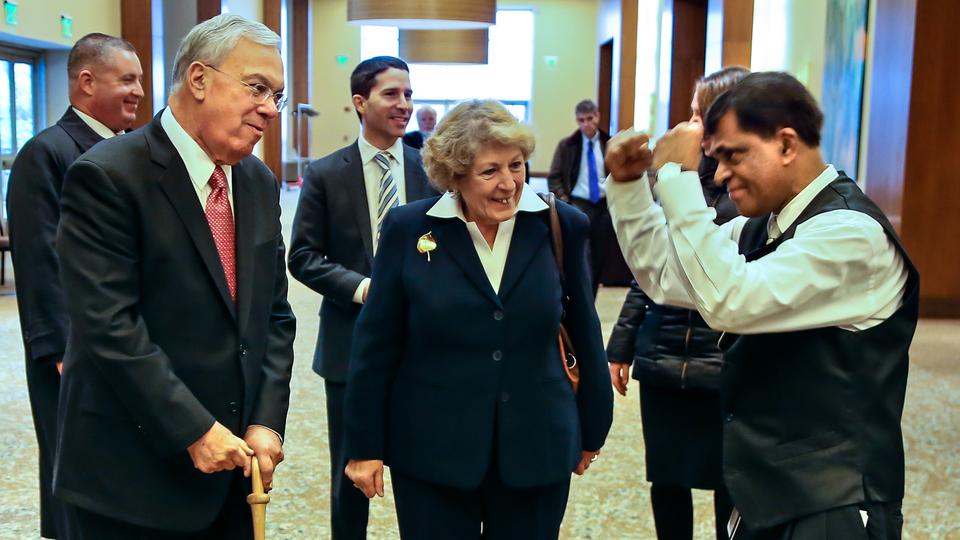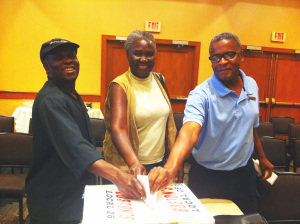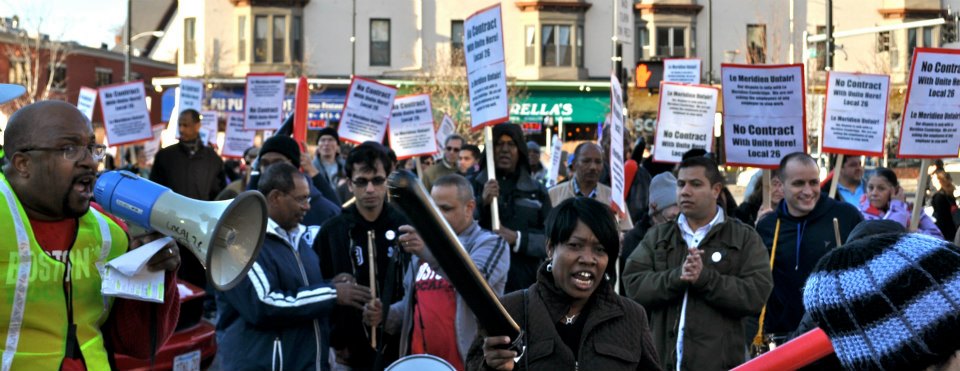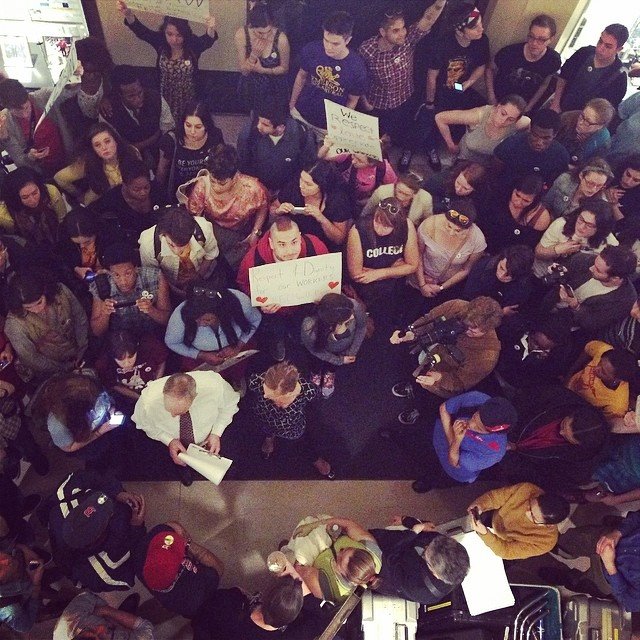Several employees of the Boston-Cambridge DoubleTree Suites by Hilton Hotel and members of the Student Labor Action Movement set up a bed-making demonstration in the Science Center Plaza Monday afternoon, continuing their year-and-a-half long efforts to support worker unionization at the hotel.
The demonstration built upon a campaign that began after a majority of workers at the hotel signed a petition in March 2013 to launch the process of deciding whether to join UNITE HERE! Local 26, a Massachusetts-based union that represents Harvard’s dining hall employees.
Since then, the workers have staged numerous protests, including a June rally that drew hundreds of protesters. The workers hope that Hilton will be more receptive to their preferred means of unionization if Harvard pressures the company. The hotel is not operated by the University but is located in a Harvard-owned building.
At the demonstration, SLAM members and workers elicited passersby to make a queen-sized bed, which was placed in the center of the plaza. Other SLAM members handed out fliers to raise awareness about working conditions at the hotel.
“We’re trying to show that we think of making beds as an easy chore, but it’s not,” SLAM member Rachel J. Sandalow-Ash ’15 said. “Workers at the Doubletree have to clean twice as many beds as workers in unionized hotels in Boston. They are expected to do an unreasonable amount of work in a short amount of time.”
The DoubleTree workers have received broad support from the community in the past, with endorsements from the Undergraduate Council and Cambridge City Council. Sandalow-Ash said this event was meant to raise awareness among freshmen.
Jessica L. Jin ’18 and Jackson H. Allen ’18 stopped by the Science Center demonstration to make the bed on their way from lunch in Annenberg, wrestling pillows into cases and laying sheets on the bed.
“We have free time, and it looked interesting,” Jin said. “It was stressful, and it’s more physically strenuous than you would imagine.”
Veteran DoubleTree worker Emma Perdomo gave the students pointers as they worked, while SLAM members cheered them on. When the bed was made, Perdomo gave them a grade: a B-minus.
“It was interesting to learn what [the campaign] is all about,” Allen said. “Harvard has a responsibility to make sure that all the businesses and stuff that they own should treat their workers fairly and should pay them for all hard work that they do, as we saw.”
Harvard has maintained its position that the issue should be resolved between Hilton and its employees, according to a July letter from Kevin Casey, Harvard’s associate vice president for public affairs and communication, to the DoubleTree management.
Company officials do not believe that a true majority of DoubleTree workers wish to be represented by any union for the purposes of collective bargaining, according to comments from a Hilton Worldwide spokesperson last April. Still, DoubleTree workers and students remain persistent in their activism.
“We want to show how hard the housekeeping is,” Perdomo said. “We just are fighting, and we can’t stop because we want labor security and job security. Harvard needs to listen to the housekeepers of the DoubleTree hotel.”
 working class people. He improved the lot for generations of Boston hotel and food service workers. He will always be remembered as a hero by the members of Local 26. We will miss him. Our thoughts and prayers are with Angela and the entire Menino family.
working class people. He improved the lot for generations of Boston hotel and food service workers. He will always be remembered as a hero by the members of Local 26. We will miss him. Our thoughts and prayers are with Angela and the entire Menino family.





